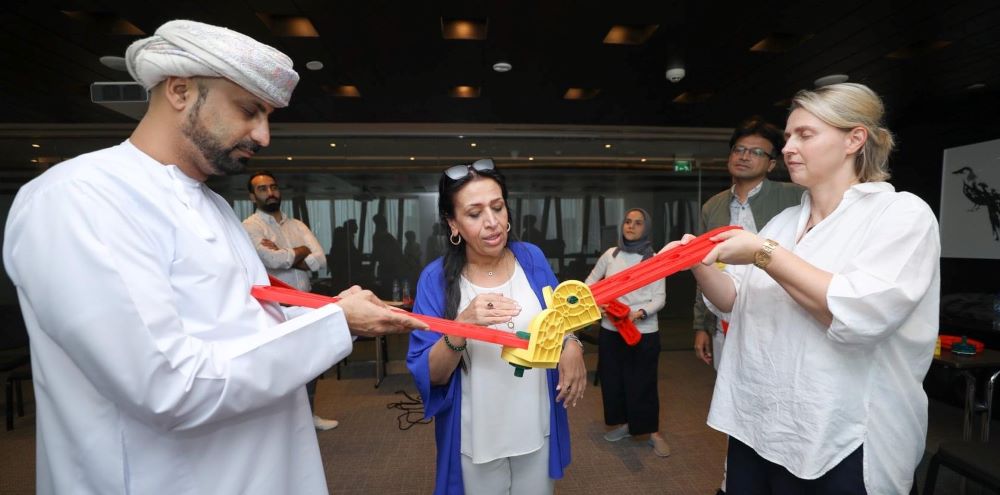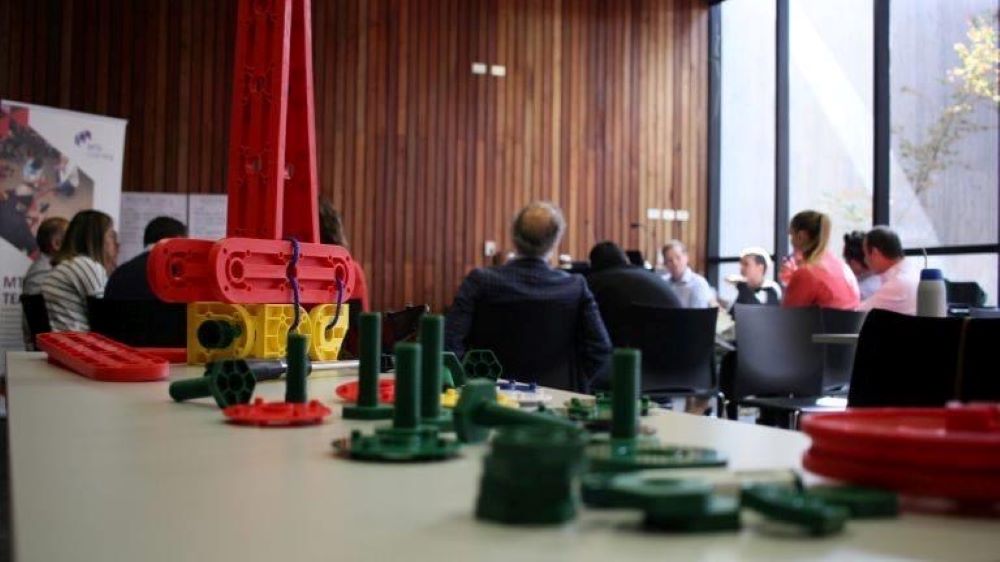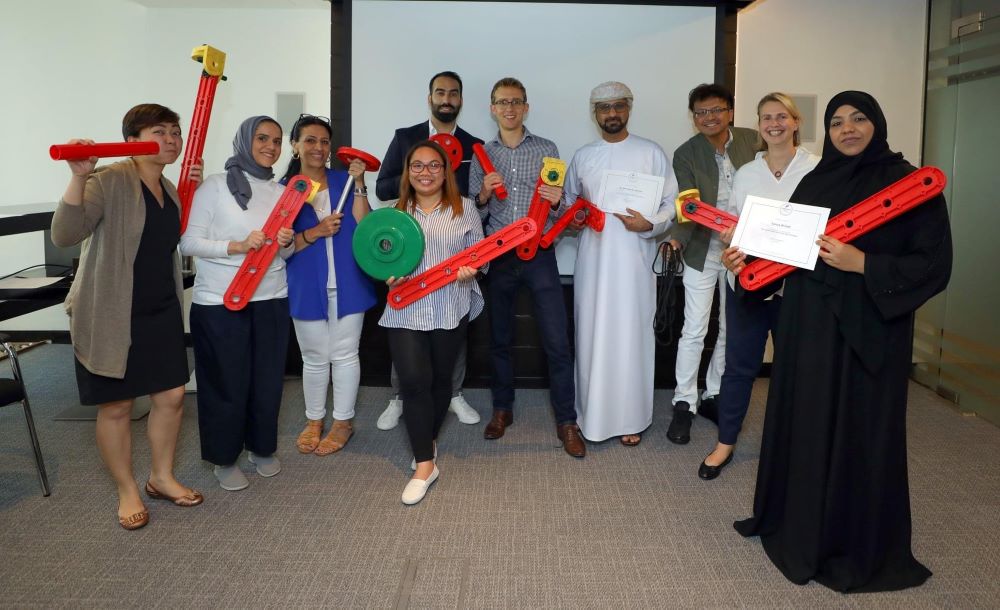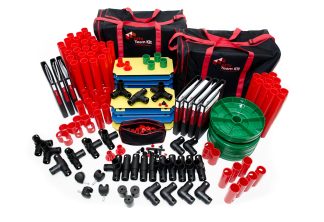Boost your Organisations Team Skills with Experiential Team Working Activities.
How we engage together at work makes a huge difference to productivity and morale. Teams that work well together are better able to achieve shared goals, support each other, and draw on each other’s diverse strengths to seize opportunities and rise to challenges. A poorly functioning team often leads to poor morale, lack of trust and ultimately poor retention as people leave.
How do you develop team skills that allow you to perform like a high-functioning team? You can follow best practice from elsewhere, but nobody else’s team is quite like your team. You’ll need to try different approaches to figure out what works for your own unique set of individuals and the situations they face.
Team working activities from MTa allow you to develop and improve team skills in a simulated and safe environment.
We’ll introduce some of the most relevant activities for team working below. But if you’re not sure where to start, it might be easier to give us a call or chat to us and we’ll help you find the right training activities for you, or read on for an idea of what’s available.
Skills we all need
Anyone taking part in MTa’s experiential learning will gain a better understanding of how they can be effective team players and how they engage with others in a team.

You don’t necessarily need the whole team to take part. These activities work equally well for just a few people or even a single individual if they take part in team activities with a group of people outside their own team. If you are looking for activities that help develop the whole team, take a look at our feature on team development.
Whatever your role in a team — whether you’re a leader or a follower, an individual contributor or a full team-player — certain skills are crucial for working with others. These include interpersonal skills like listening, assertiveness, expressing ideas and asking questions. They also include specific team skills like: planning, conflict resolution; and decision making.
Experiential learning kits from MTa provide everything you need to develop those skills, as well as supporting complementary areas like team building and leadership. You can use them to help support and explore team working concepts like Belbin’s Team Roles: participants can really see the different roles in action and understand more about their own role and how to flex it.
Kits to fit your team
Each task has been carefully designed to recreate the issues which help and hinder effective team working.
MTa Mini is a good place to start, with four different one-hour activities that explore different aspects of team-working. These vary in-style from a light-heated introduction in Handcuffed to more challenging activities that require effective leadership or inter-group work like Helipads.
Handcuffed comes in two parts and part 1 is ideal as an ice-breaker and to get teams exploring planning and close cooperation across competing teams. Helipads focuses on business success and how this is driven by effective team working both within and across teams. It explores a range of skills, behaviours and attitudes that impact successful team-working.
MTa Team Kit provides a further 10 short activities. Despite being quick and easy to set up, these all raise salient points about how individuals in the group are working with each other. They’re great for introducing the basic concepts and skills around team working, and stimulating further thought.
Finally, MTa Insights explores two different levels of team-working. Team Working 1 includes 10 different activities that explore the basics of team working, including: expressing ideas, building on the ideas of others, listening, questioning, respecting others and reviewing progress. Even though these are introductory activities they still have high levels of engagement and involvement. And they can be used at all levels of the organization, even in senior levels.

Team Working 2 builds on those basics by developing the skills, abilities, attitudes and the personal confidence needed to perform effectively in teams that are working with more complex issues.They develop more complex skills like planning, providing (and receiving) constructive criticism, prioritizing, defining and enforcing? quality standards, taking decisions as a team, and understanding and achieving success.
Reflect on your reality
Every kit includes insightful resources that help participants reflect on what happened in the activities, and to consider the skills, behaviours and attitudes that are necessary to succeed. In a well-facilitated exercise, it is this reflection that provides most of the learning. MTa call this the ‘Learning Arena’ where all participants are encouraged to:
- Identify the positive, indifferent and negative aspects of the activity being reviewed
- Build on positive aspects to make them even more valuable
- Develop ideas to address indifferent and negative aspects
- Evaluate and select ideas to be implemented
- Explore, practise and refine ideas
- Plan the Learning Transfer: how will the learning experience lead to tangible improvements in day-to-day performance
Participants are encouraged to reflect and think for themselves and then share their perspectives with the group. To help that reflection, each leadership activity comes with learning review sheets that should be completed before group discussion. Download a sample learning review sheet here.
One of the best ways to see these kits in action and to find out which kit(s) are best for you, is to attend one of MTa’s Facilitator Masterclasses. Here you’ll get unique insights from our experienced facilitators on how to run successful sessions, as well as first-hand experience of the kits and your own reflection.

Call our friendly team today to find out more, or view the full range of MTa’s learning, development and assessment activities at https://www.experientiallearning.org/training-activities/

